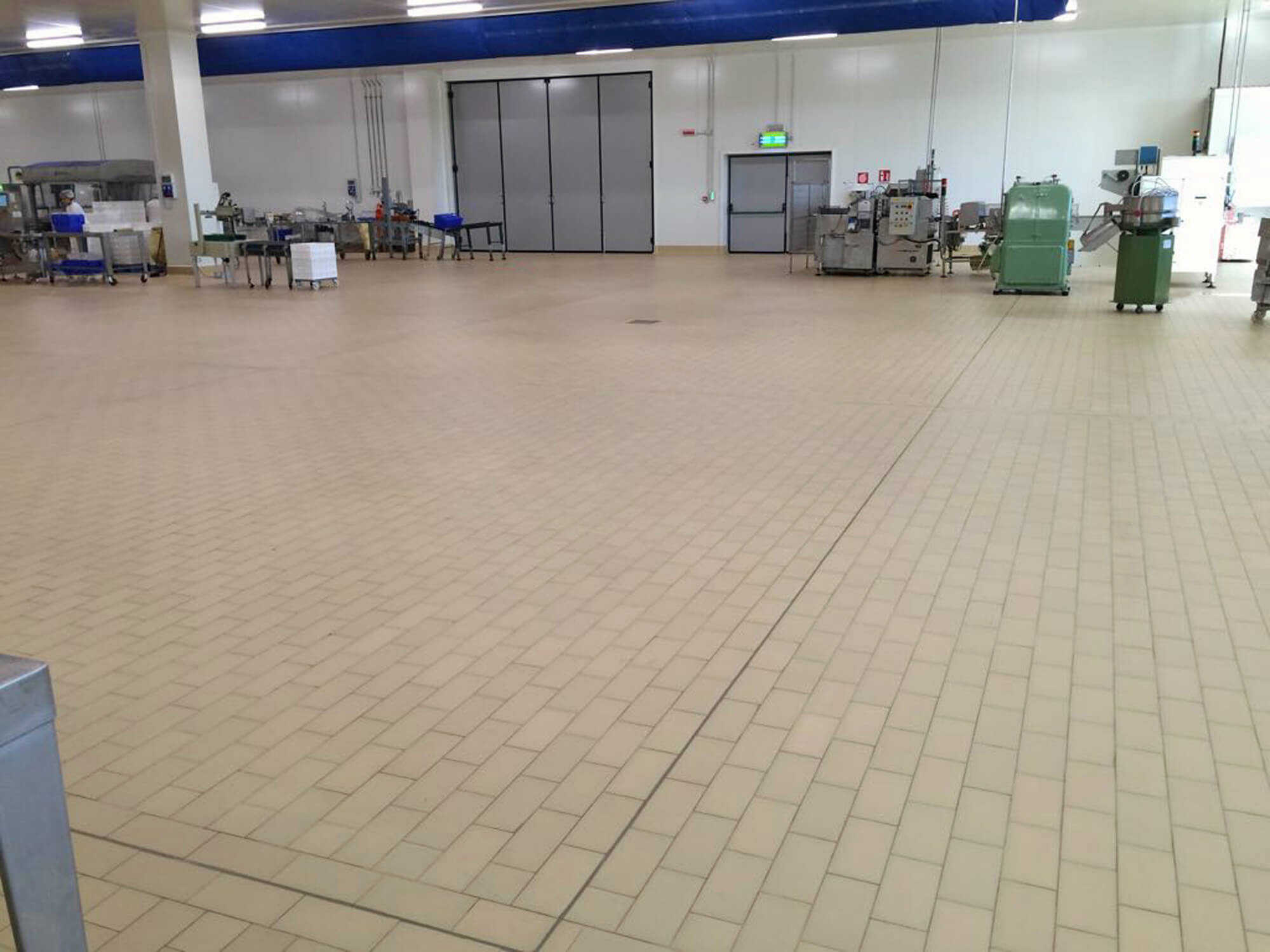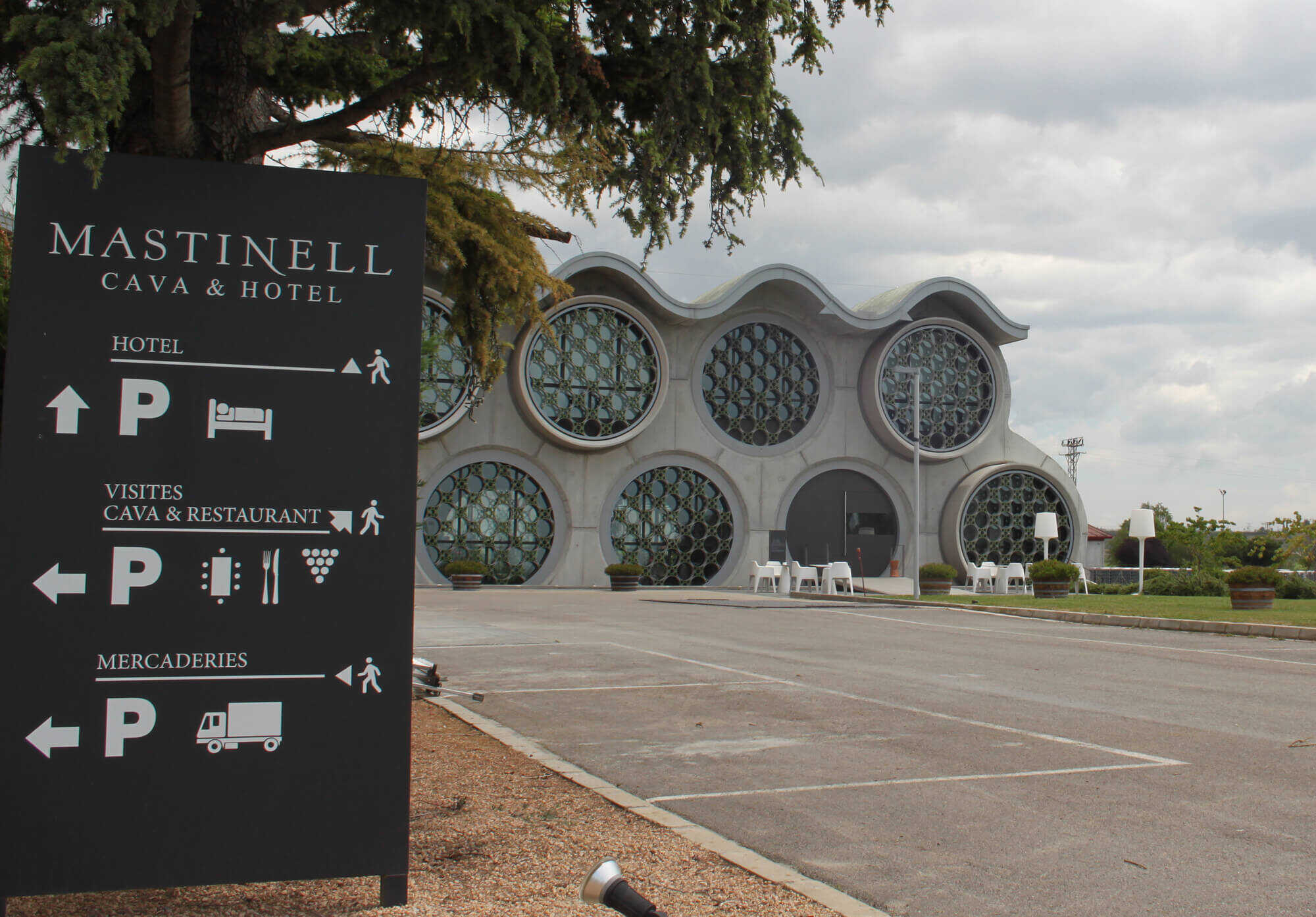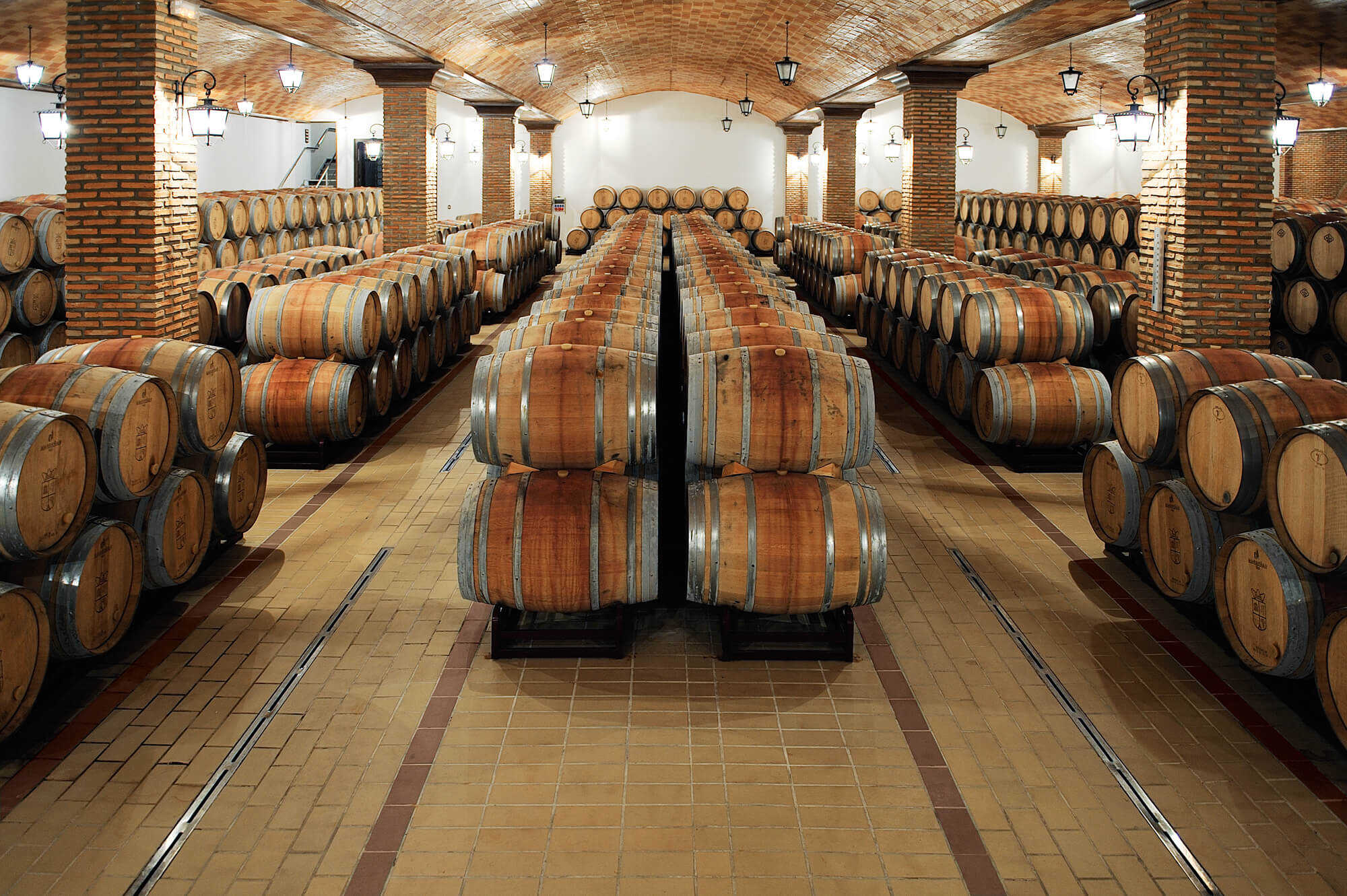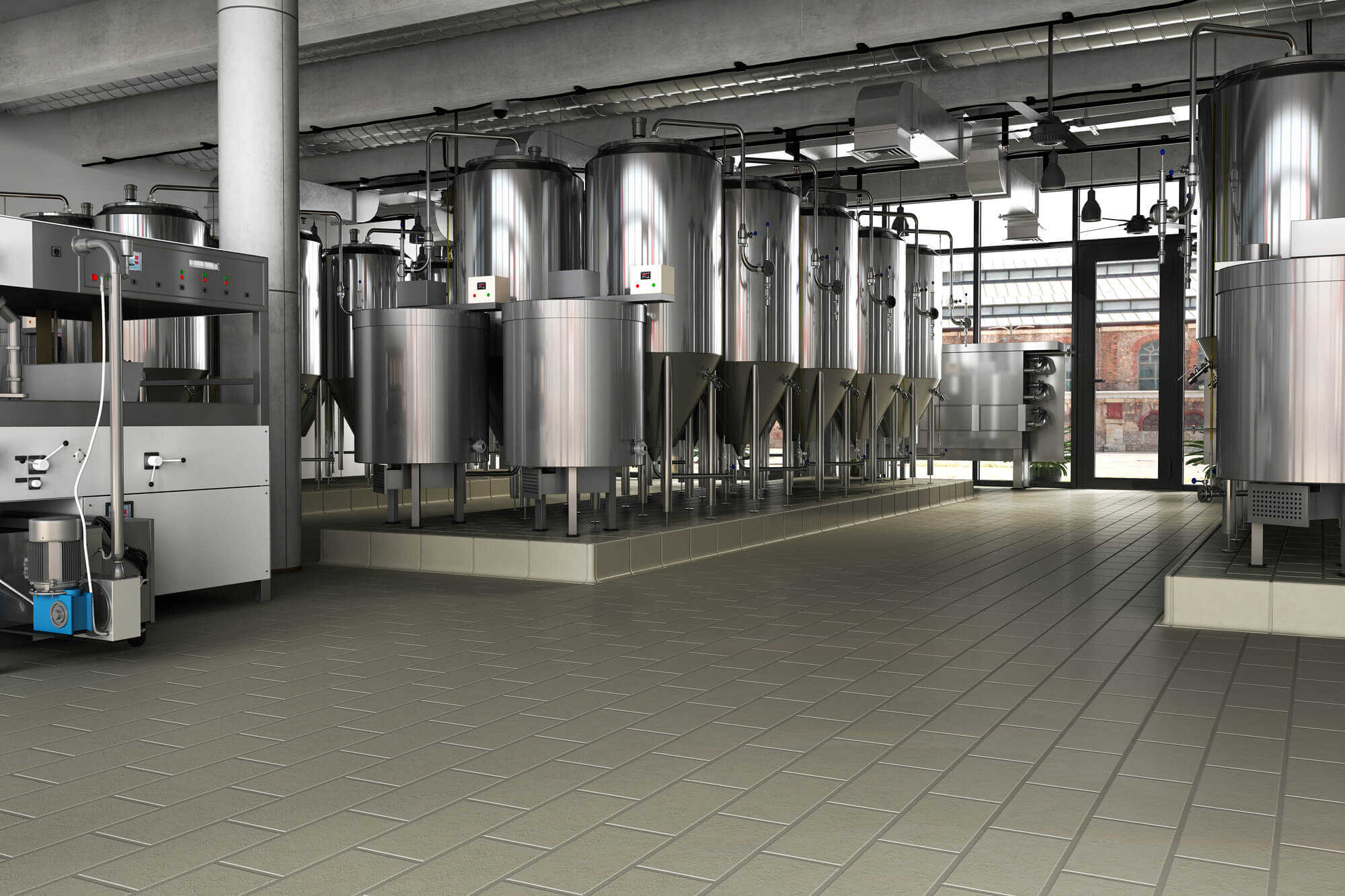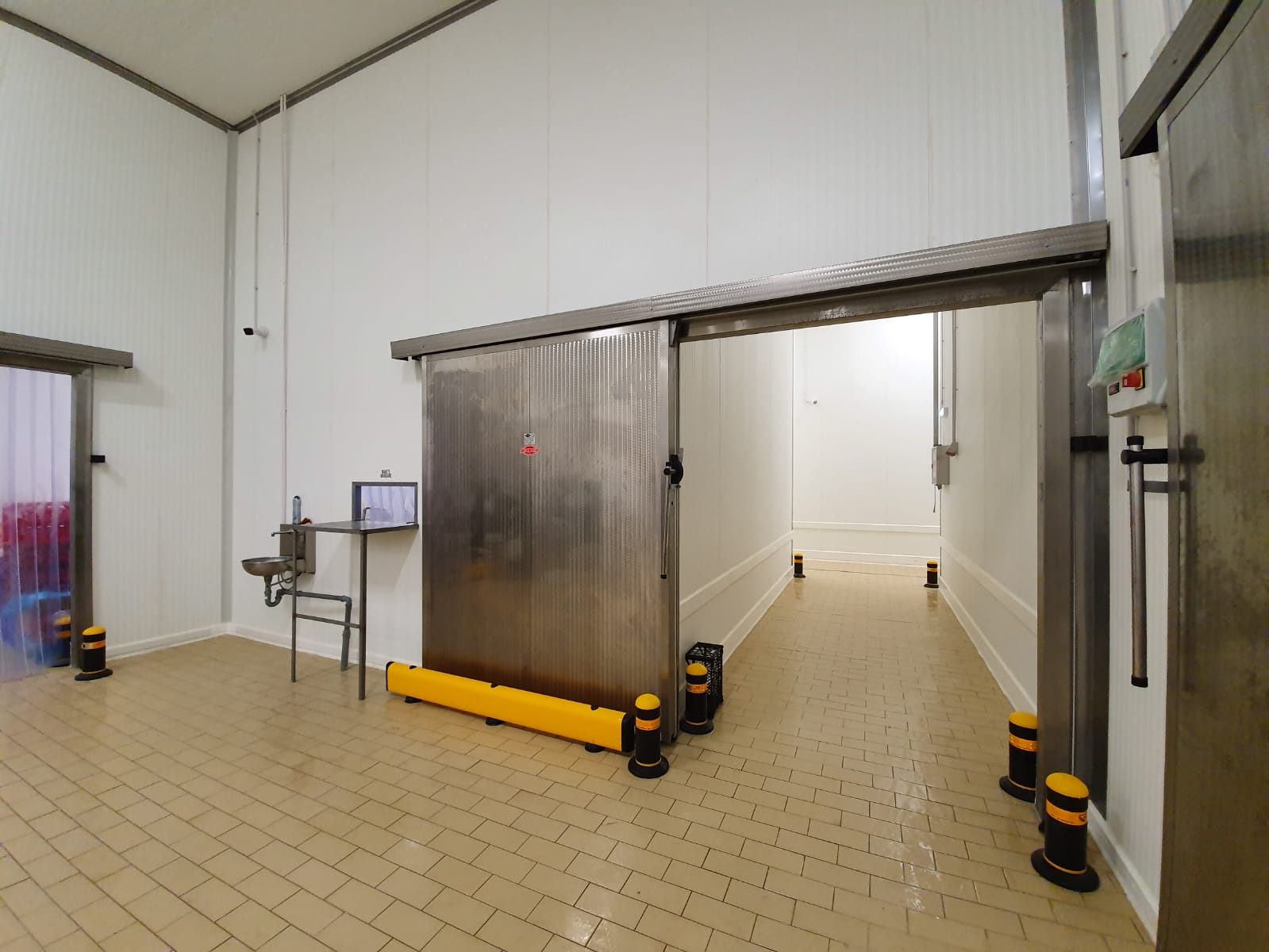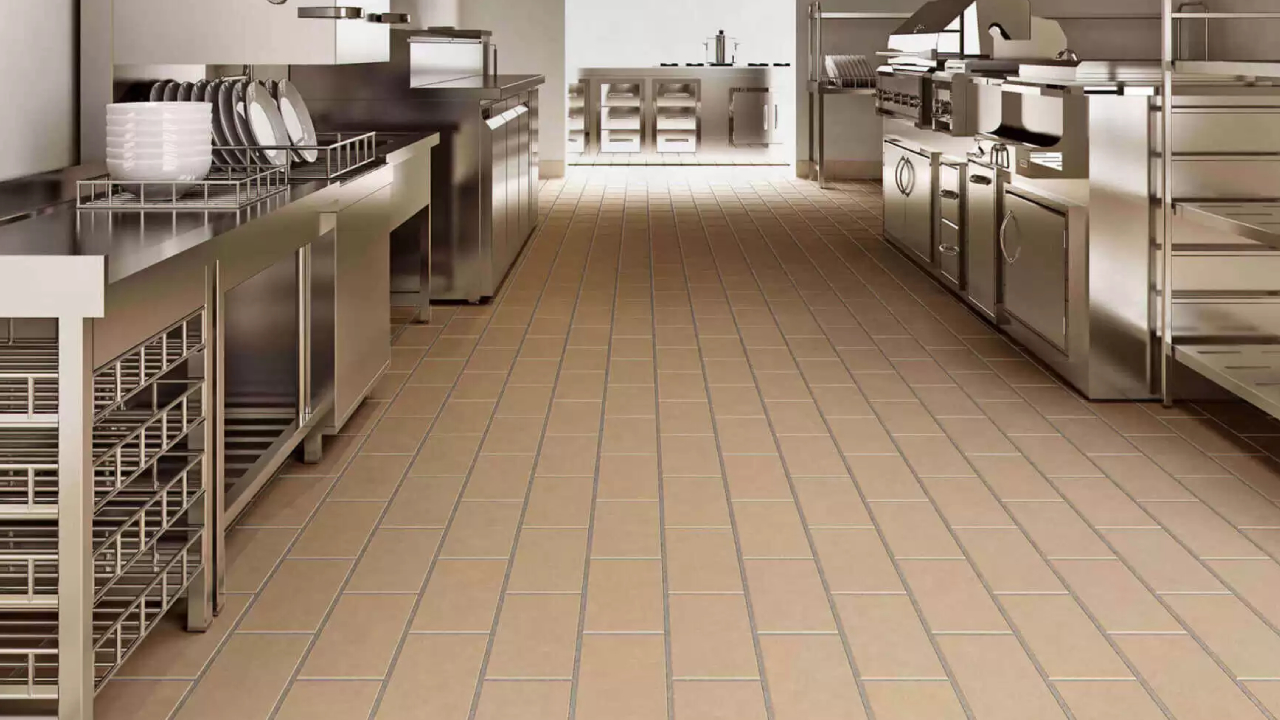Industrial kitchens and hospitality establishments require flooring that offers superior resistance, exceptional hygiene, and safety. The Proyect collection by Exagres provides the perfect solution with its high-resistance extruded porcelain stoneware, specifically designed to withstand the demands of these intensive environments. For more details about our flooring options, visit our page on industrial flooring.
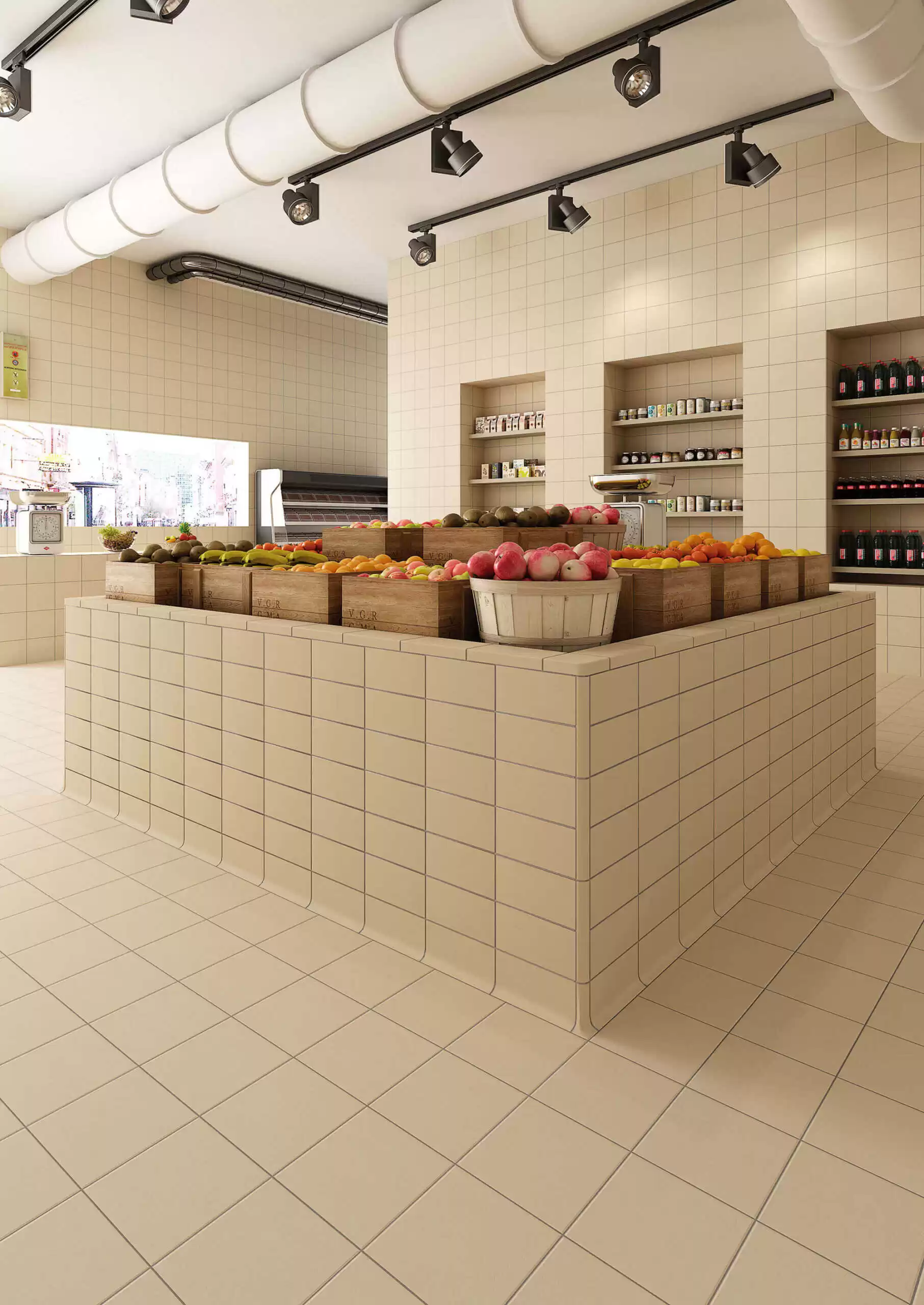
PROYECT SERIES: THE PERFECT SOLUTION FOR INDUSTRIAL KITCHENS
The Proyect collection by Exagres has been developed with the specific needs of industrial kitchens and hospitality establishments in mind. This flooring offers a unique combination of durability, safety, and hygiene, ensuring a safe and clean working environment.
TECHNICAL FEATURES OF THE PROYECT INDUSTRIAL FLOORING
The Proyect collection stands out for its advanced technical features, making it the ideal choice for industrial flooring in kitchens and hospitality.
High mechanical resistance
The Proyect series withstands heavy loads, making it perfect for high-traffic areas such as industrial kitchens and warehouses.
Thickness and dovetail grooved back
The 18 mm thick tiles with a dovetail grooved back ensure excellent adhesion and impact resistance.
Environmental product declaration
Proyect complies with ISO 14.025 and EN UNE 15804 + A1 standards, ensuring a sustainable construction model.
High chemical resistance
This flooring is resistant to acids, chemicals, and salts, making it ideal for chemical and metallurgical industries.
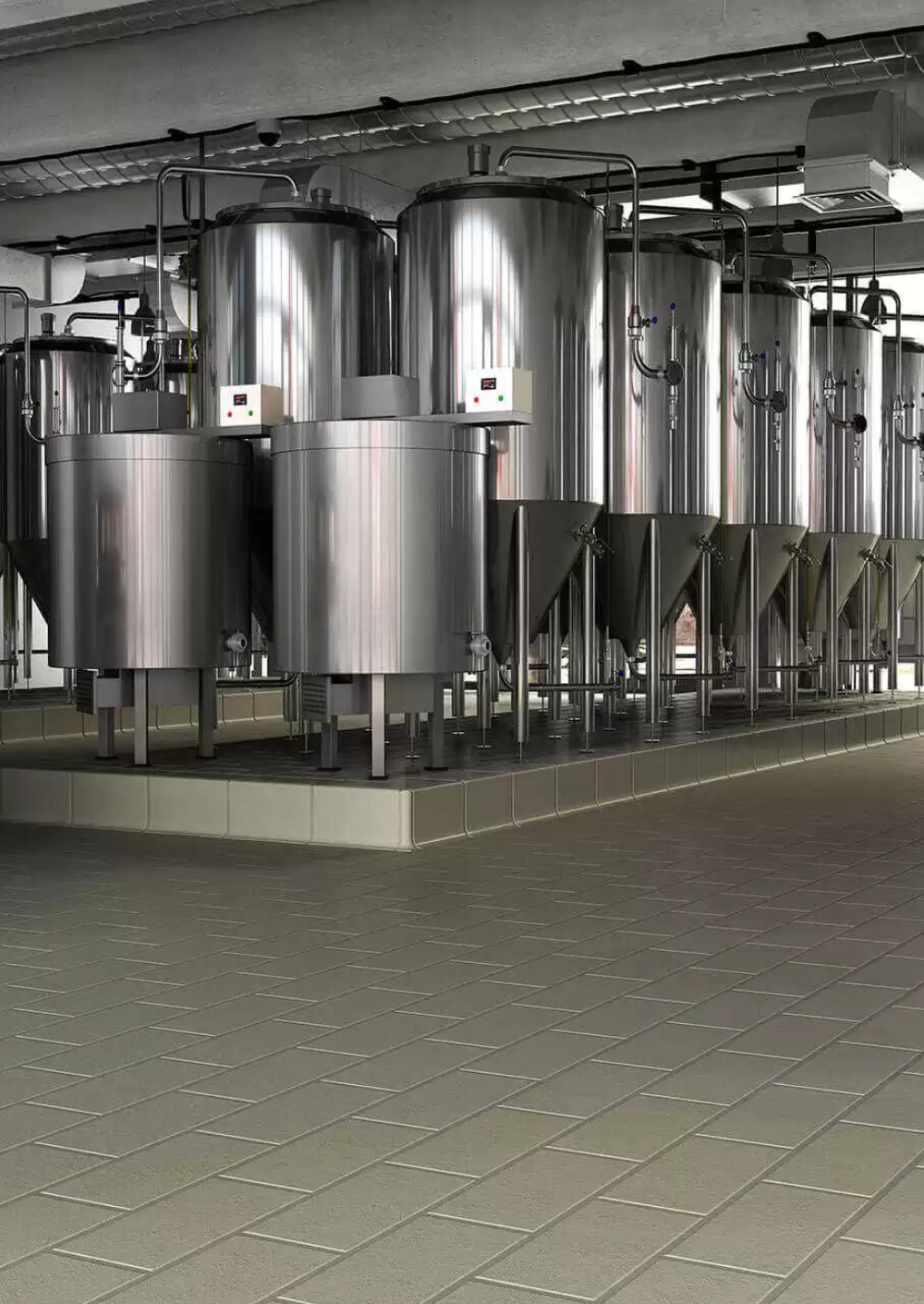
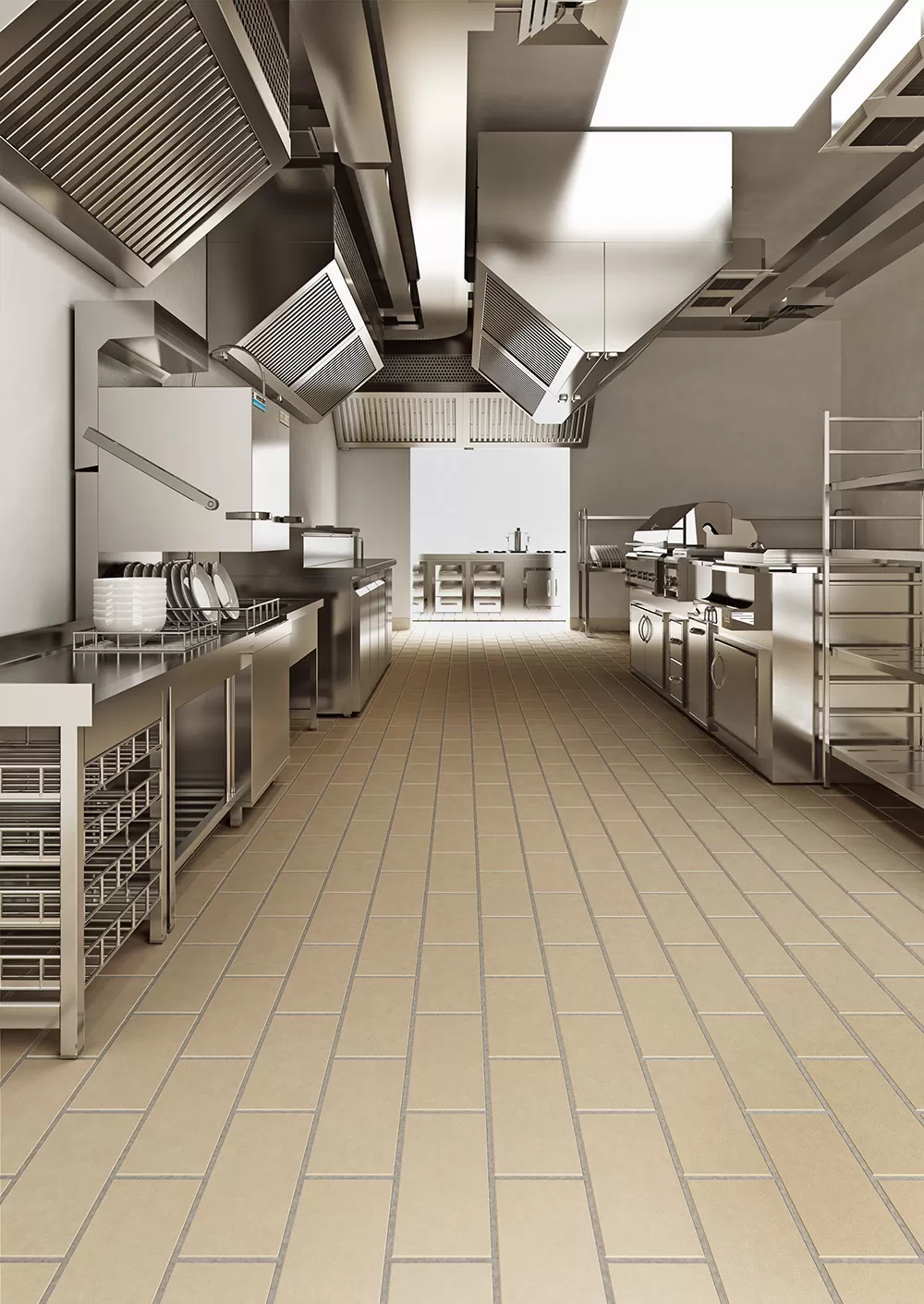
Optimal piece geometry
The design with bevelled edges and lateral grooving maximises adhesion and impact resistance.
Low water absorption
With its low porosity, Proyect does not absorb dirt or liquids, making it easy to clean and maintain hygiene.
Non-slip properties:
The anti-slip finish (C3/R11) is perfect for wet areas like kitchens and workspaces.
Antibacterial properties
Proyect offers a surface that prevents bacterial growth, ensuring a hygienic environment.
INSTALLATION SYSTEMS FOR FLOORING IN INDUSTRIAL KITCHENS
To ensure optimal and durable performance of ceramic coverings, it is essential to follow certain recommended techniques and proper installation practices. Below are the most important guidelines for the correct installation of ceramic tiles.
IMPORTANCE OF MATERIALS
The performance of a ceramic covering largely depends on the materials and installation techniques. In industrial coverings, the installation factors are crucial due to the intense demands.
JOINTS AND MODULATION
The recommended joint width is 5 mm between tiles and special pieces. Large sections should be divided into 20-25 m² panels with partition and perimeter expansion joints to allow for adequate and safe thermal movements.
JOINT MATERIALS
The joints should include the ceramic, adhesive layer, and levelling up to the screed or solid structure. Sealing must be done with materials that offer permanent elasticity and chemical resistance according to the expected usage demands on the flooring.
SURFACE PREPARATION
Before installation, the layout, surface preparation, waterproofing of the substrate, drainage slopes, and installation of gutters must be completed.
APPLICATION OF ADHESIVE MORTAR
It is recommended to use prepared C2 adhesive mortars (according to UNE EN 12004) in a continuous thin layer on sound, regular, and sufficiently flat substrates.
LEVEL AND INSTALL SIMULTANEOUSLY
This consists of using mortars with a 1:3 Portland cement ratio mixed with liquid latex to level and install the tiles with double gluing on the still fresh mortar base.
FAQ ABOUT INDUSTRIAL KITCHEN FLOORING
In this frequently asked questions (FAQ) section, we cover all the key aspects of industrial kitchen flooring, from resistance and durability to the anti-slip and hygienic properties that make it ideal for high-traffic and demanding conditions. We answer the most common questions about the materials used, installation, and maintenance, providing essential information for those seeking effective and safe solutions in the design of industrial and commercial kitchens.
WHAT ARE THE BENEFITS OF EXTRUDED STONEWARE COMPARED TO OTHER MATERIALS?
Extruded stoneware offers higher mechanical and chemical resistance, low porosity, and anti-slip properties, outperforming other materials in durability and safety.
WHY IS IT IMPORTANT TO CHOOSE THE RIGHT FLOORING FOR AN INDUSTRIAL KITCHEN?
The right flooring ensures the safety, hygiene, and durability required for the intense use in industrial kitchens.
WHAT CHARACTERISTICS SHOULD GOOD INDUSTRIAL KITCHEN FLOORING HAVE?
It should be resistant to heavy loads, anti-slip, easy to clean, chemical-resistant, and durable.
HOW IS INDUSTRIAL KITCHEN FLOORING MAINTAINED?
Maintenance is simple due to its low porosity and resistance to stains, mould, and fungi. It does not require periodic treatments.
IS IT NECESSARY TO CONDUCT REGULAR FLOOR INSPECTIONS?
Yes, regular inspections help maintain safety and hygiene by identifying and resolving potential issues in time.
HOW DO YOU CHOOSE THE RIGHT FLOORING FOR A SPECIFIC INDUSTRIAL KITCHEN?
You should consider the specific needs of the kitchen, such as load resistance, chemical conditions, and hygiene requirements.
HOW LONG DOES INDUSTRIAL KITCHEN FLOORING LAST?
With proper maintenance, a high-quality industrial floor like Proyect can last many years, even under intensive use conditions.
HOW DOES INDUSTRIAL FLOORING DIFFER FROM CONVENTIONAL FLOORING?
Industrial floors are designed to withstand harsher conditions, with greater mechanical and chemical resistance, as well as anti-slip and antibacterial properties.
ARE THERE ECO-FRIENDLY OPTIONS FOR INDUSTRIAL KITCHEN FLOORING?
Yes, Proyect is committed to sustainability, complying with ISO 14.025 and EN UNE 15804 + A1 standards, offering an eco-friendly and environmentally respectful option for industrial floors.
WHAT IS RECOMMENDED FOR THE INSTALLATION OF EXTERIOR FLOORING IN HARSH CLIMATES AND HEAVY TRAFFIC?
In these cases, it is recommended to use mortars with liquid latex additives for both installation and grouting, as long as there is no chemical exposure. For the thin layer technique, C2 type adhesives (according to UNE EN 12004) and CG2 type joint mortars (according to UNE EN 13388) should be used.
WHAT CONSIDERATIONS SHOULD BE TAKEN INTO ACCOUNT FOR HIGH CHEMICAL RESISTANCE COVERINGS?
For high chemical resistance coverings, the joint material should be suitable for the specific chemical exposure, such as RG type (according to UNE EN 13388), recommending epoxy resin mortars. Additionally, the execution of joints and connections must be especially careful to avoid leaks, recommending the use of epoxy adhesives and appropriate chemical waterproofing to protect the screed and structural elements.
